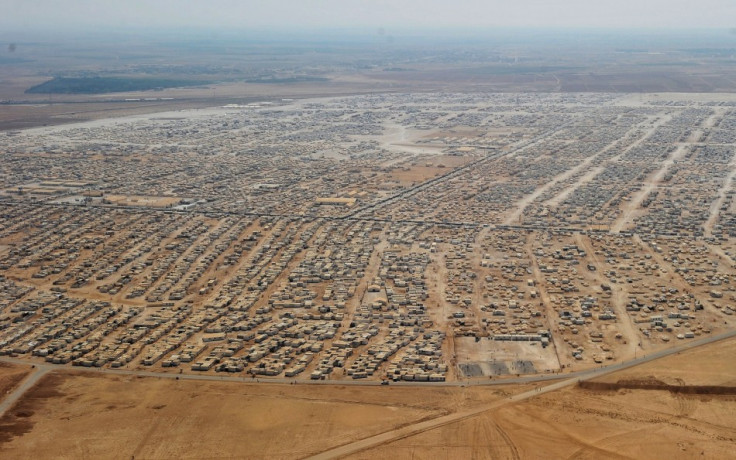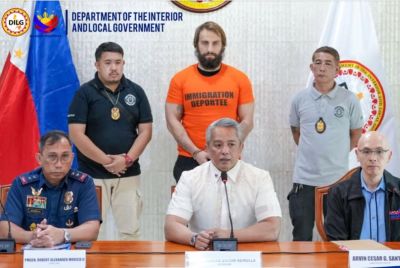Syria Civil War: Jordan's Vast Zaatari Refugee Camp Given 'City Status'

The Middle East's largest refugee camp for Syrian refugees will turn into a temporary city with local councils, paved streets, parks, and sewage pipes, according to the manager of Jordan's Zaatari camp.
Kilian Kleinschmidt, who works for the UN refugee agency in the vast camp, told AP of his long-term solution to help the refugees who sought shelter from the nearby civil war.
"We are setting up [...] a temporary city, as long as people have to be here," he said.
The tent city, set up in the dusty Jordanian desert, is about 12km (8 miles) from the Syrian border and has already become the fourth largest city in Jordan.
It opened in July 2012 with 100 refugee families and now hosts 122,673 Syrians making it the second world's largest refugee camp, behind Dadaab in eastern Kenya.
The camp costs about $500,000 (£320,000) a day to run with half a million pieces of pita bread and 4.2 million of water distributed daily.
Although life is tough in Zaatari, many tents have already been replaced with trailers with satellite dishes on the roofs.
Some refugees have started businesses and the camp has three schools, two hospitals and a maternity clinic.
Rules of the camp state that bread, rice, bulgur and lentils are free.
Each refugee is handed six dinars ($8.50) worth of food stamps every two weeks.
This allows them to buy eggs, milk and chicken and groceries.
Kleinschmidt said that Zaatari has been his toughest assignment, despite his previous work in Somalia and Pakistan.
In March, when he arrived, "it seemed overwhelming because of the level of violence, which I thought was really shocking," he said. "That is not the case anymore today."
"The overall approach, also chosen by the Jordanian authorities, is not a full enabling environment but at least not a prohibiting environment," he said.
Kleinschmidt wants to turn the camp, which looks like a favela or a slum, into a city.
He started to build neighbourhood councils in the camp's 12 districts with the help of Jordanian authorities.
"This is a very fine line we all have to grapple with," he said.
"How do you find that balance between making life comfortable, making people accountable for what they are doing, but also making sure that they will be able to leave."
© Copyright IBTimes 2025. All rights reserved.





















